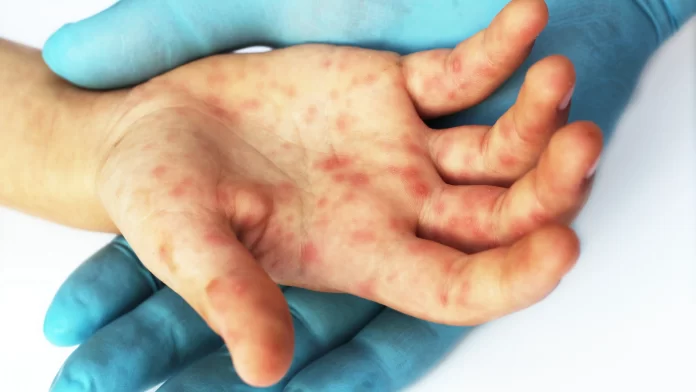Enterovirus are a group of viruses that commonly cause mild to severe illness, particularly in infants, children, and adolescents. They belong to the Picornaviridae family and include numerous strains such as coxsackievirus, echovirus, and poliovirus. These viruses typically spread through respiratory secretions (such as saliva, nasal mucus, or sputum) and fecal-oral transmission.
Symptoms:
Common symptoms of enterovirus infection include:
- Fever
- Runny nose
- Cough
- Sore throat
- Rash
- Body aches
- Muscle weakness
- Nausea and vomiting
- Diarrhea
- Meningitis or encephalitis (in severe cases)
Causes:
Enteroviruses are primarily transmitted through close contact with infected individuals, contaminated surfaces, or ingestion of contaminated food or water. They can also spread through respiratory droplets when an infected person coughs or sneezes.
Treatment:
There is no specific antiviral treatment for most enterovirus infections. Treatment is generally supportive and focuses on relieving symptoms. This may include rest, hydration, pain relief (such as acetaminophen or ibuprofen for fever and discomfort), and in severe cases, hospitalization for monitoring and management of complications like dehydration or respiratory distress.
Prevention:
- Hand Hygiene: Regular handwashing with soap and water for at least 20 seconds, especially after using the restroom, changing diapers, and before eating or preparing food.
- Avoid Close Contact: Minimize close contact with individuals who are sick, and avoid sharing utensils, cups, or personal items.
- Vaccination: Vaccination against certain enterovirus strains like poliovirus is essential for prevention. Routine childhood immunization schedules typically include polio vaccines.
- Environmental Hygiene: Disinfect frequently touched surfaces and objects, especially in areas with known outbreaks.
- Stay Home When Sick: Individuals experiencing symptoms of enterovirus infection should stay home to prevent spreading the virus to others.
- Practice Respiratory Hygiene: Cover your mouth and nose with a tissue or your elbow when coughing or sneezing, and dispose of tissues properly.
































